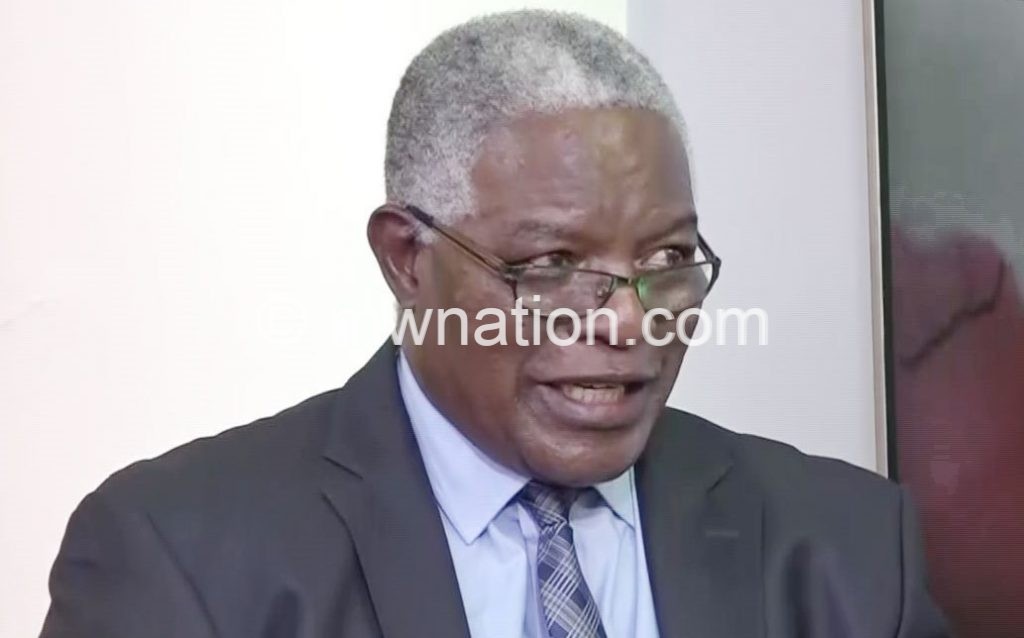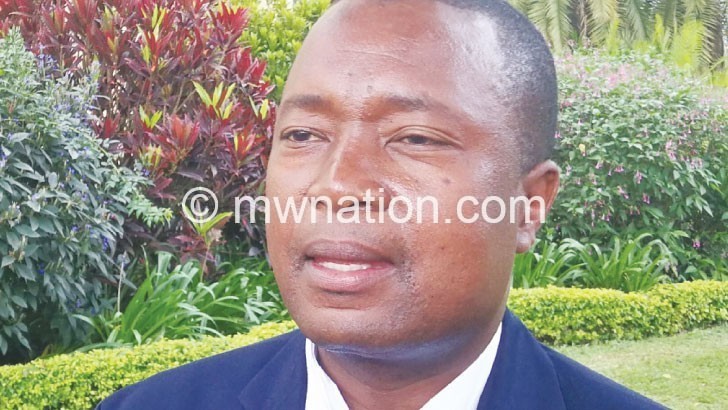DPP gags hopefuls
Former governing Democratic Progressive Party (DPP) has stopped presidential hopefuls from canvassing for votes ahead of the 2023 convention, saying there is no vacancy in the party’s presidency.
But political and governance analysts have faulted the party’s move, saying DPP should have regulated the process instead of suppressing candidates. They warn that the decision has the potential to create underground divisions.

In a statement yesterday and in an interview, DPP spokesperson Brown Mpinganjira argued that the campaign by the presidential aspirants is undermining efforts to unite the party being championed by its leader Peter Mutharika.
So far, there are three known presidential hopefuls in DPP vice-president (South) Kondwani Nankhumwa, national governing council member Joseph Mwanamvekha and former Reserve Bank of Malawi governor Dalitso Kabambe.
Kabambe and Mwanamvekha have in recent weeks been meeting DPP officials at the grass roots, canvassing for votes at the convention.
But Mpinganjira said the party’s Central Committee, which made the decision, has also stopped all aspirants either by themselves or through their agents from campaigning, including through social media.

Reads the statement: “The Central Committee of the Democratic Progressive Party hereby advises all candidates aspiring for the position of party President to cease, with immediate effect, going round the district and regions canvassing for votes. The immediate agenda of the party president, His Excellency Professor Peter Mutharika is to unite the party and strengthen its structures.
“Such agenda is being undermined by the divisive campaign being undertaken by aspirants in the districts, the regions and social media, years ahead of the party convention in 2023. The Central Committee reminds all members that the position of party president of the DPP is not vacant at this moment in time.”
And in an interview, Mpinganjira said it was too early to start campaigning, especially that the convention is in 2023.
He said: “We have made it clear that the convention is in 2023, so it’s a long way to go. We are also faced with the Covid-19 pandemic, therefore, gathering too many people as it is being done is risky. The party will advise when to start campaigning.
“We all know we have a leader in place and people have to exercise some patience. There is no vacancy at the moment on the position of president in DPP. We don’t expect anybody to disregard what the party has directed, after all, it’s in the interest of the party and the candidates themselves.”
On the action the party will take against those who defy the directive, Mpinganjira insisted “we don’t expect anybody to defy the directive, but if it happens, we will cross the bridge when we get there”.
On his part, Mwanamvekha said he was not going round the country to sell himself as a presidential candidate, but to appreciate the challenges people are facing in his capacity as DPP spokesperson on finance in Parliament.
“I haven’t announced my intention to compete for the presidency. I know the convention is still very far, and for now, I am not one of the aspiring candidates,” he said.
Nankhumwa said he had not started campaigning; hence, he was not affected by the ban.
He said he could not have been campaigning without knowning the dates of the convention.
Nankhumwa said: “They know very well who was campaining. It is Dr Kabambe and honourable Mwanamvekha, so that message should go to them.
“We hear the Central Committee made the decision, but which committee because I was not there, treasurer general Jappie Mhango, secretary general Grezelder Jeffrey and vice-president [Eastern Region] Bright Msaka were all not there.”
The DPP constitution is silent on when and how people aspiring for positions in the party can begin canvassing for votes, let alone on how the party’s leadership can regulate the process of campaigning.
The party’s director of legal affairs Charles Mhango said in an interview that no such provisions exist in its constitution, but indicated that the decision by the Central Committee was valid as it is within its mandate.
He said: “This is purely an internal organisational control mechanism. The statement is political in nature, the only legal thing is the date for the convention mentioned. There is no election for which people would be campaigning now.”
Under Article 9 (5d), the DPP constitution gives powers to the Central Committee to “make such other decisions on behalf of the National
Governing Council that may arise in the day to day management of the party and (e) to perform such other duties and functions as may be necessary for the smooth functioning of the Party”.
The DPP last held a national conference in 2018, and Article 8 (4) of the DPP constitution says “the party shall hold at least one mid-term meeting of the National Political Conference as the Central Committee may determine”.
A senior member of DPP, who spoke on condition of anonymity, faulted the directive, saying the candidates were helping to revamp the party.
“These people campaigning are actually helping to revamp DPP because they are meeting our supporters, they are telling them that the party us still strong, which is needed,” said the official.
Happy Kayuni, professor of political and administrative studies at Chancellor College—a constituent college of the University of Malawi, said yesterday that the move was retrogressive.
He said the decision reflected badly on the party’s top leadership and could lead to speculation that the leadership has a preferred candidate they want to impose on followers.
Kayuni said: “It is a clear indication that there is vacuum in leadership. Divisions will now be more serious because the campaigning will be underground. People campaigning is not division, what matters is regulating the process and not suppressing it.”
University of Livingstonia-based political analyst George Phiri agreed with Kayuni, saying the move shows that those occupying positions in DPP feel threatened and are trying to frustrate potential leaders.
Peter Mutharika took over the leadership of DPP after the death of his brother, Bingu wa Mutharika in April 2012, propelling the party to victory in the 2014 Tripartite Elections.






One Comment